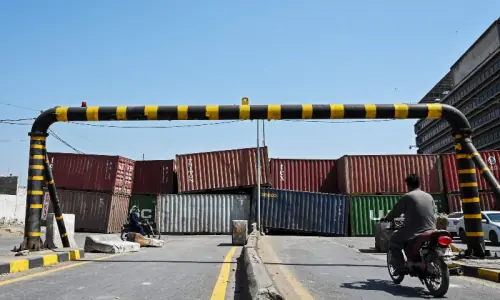ISLAMABAD: The Supreme Court wondered on Thursday what adverse effects large-scale mining at the Reko Diq site could have on the groundwater level, as it is already scarce and fast depleting in Balochistan due to lack of rains.
“This is just a thought that since the present mining operation is a water-intensive exercise and the ore after excavation would be crushed into powder and mixed with water before being sent through a slurry pipeline to the port,” observed Justice Ijazul Ahsan during the hearing of a presidential reference on the Reko Diq project.
Justice Ahsan wondered from where this water would come when it was already scarce in Balochistan and huge quantities would be used daily.
Additional Attorney General Chaudhry Aamir Rehman said he would come with the required information later, but insisted that water was available at the site and large water reservoirs would be built for its preservation.
Justice Ahsan wonders what adverse impact large-scale mining can have on water resources
During Thursday’s hearing, Chief Justice of Pakistan (CJP) Umar Ata Bandial, who headed the five-judge bench, observed that one could imagine the wastage of water since so much water would be used in the project, adding that aquifers should not be depleted.
Justice Jamal Mandokhel recalled a Balochistan High Court (BHC) judgement that said natural resources and underground water belonged to the future generation.
The court, however, asked Additional Attorney General Rehman to come up with alternative solutions, at which the law officer said that he would look into the issue.
During the hearing, Justice Bandial spoke about labour and livelihood rights, adding that denying labour rights could pose a challenge.
Mr Rehman, however, insisted that the financial model of the company had been considered from all aspects, but said he would still consult and come up with a response in this regard.
Amanullah Kanrani, who represented the Balochistan Bar Council, described the government’s proposed settlement agreement on Reko Diq as a “fixed match” and alleged that the nine-hour-long briefing given to the Balochistan Assembly was held “under the shadows of swords”.
At this, Justice Bandial asked the counsel not to comment on a national project meant for developing Balochistan.
Advocate General Asif Reki told the court that after the 2013 judgement on Reko Diq, the Balochistan government spent Rs8 billion in international arbitration.
Published in Dawn, November 25th, 2022






























